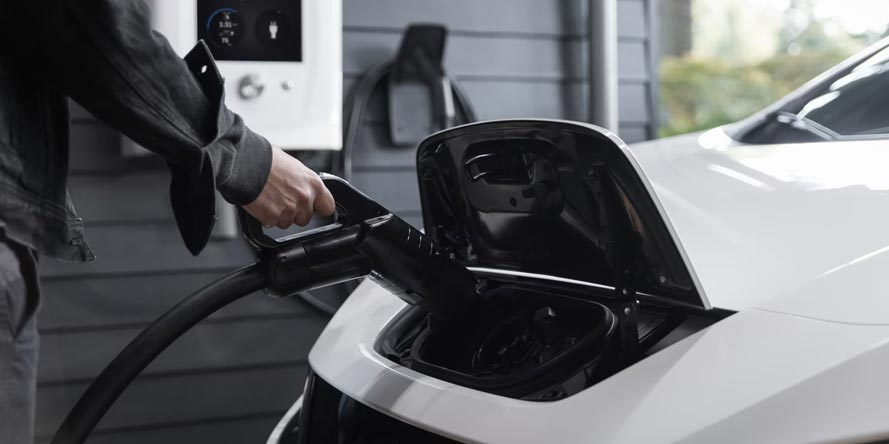How To Charge An Electric Car
The biggest worry most people have about making the switch to an electric vehicle (EV) is relating to charging the battery. However, the reality is that charging an EV is much easier than you think, and it is getting easier all the time, so here is a quick rundown of what you need to know.
How much charge do I need?
The amount of time it takes to charge an EV depends on the size of the car’s battery, the amount of electrical current the EV can handle and the speed of the charger. The size and power of a battery is expressed in kilowatt hours (kWh), with a larger figure denoting a larger battery, which will take longer to charge.
Chargers deliver electricity in kilowatts, with typically 3kW to 150kw chargers widely available to everyone. So using a basic charger with a low kilowatt output will take much longer to charge the average EV than a higher kilowatt charger. For example, a 3kW charger can take up to 12 hours to fully charge a Nissan Leaf, which has a 40 kWh battery.
So essentially, the key to charging and capacity is planning what kind of EV you need and what kind of journeys you take, in terms of your lifestyle, driving and parking habits. The charging network is constantly growing, but already you can charge in supermarket car parks, leisure centre car parks and shopping centres, as well as dedicated charging hubs and service stations. So can you charge while shopping or at the gym for example? With some planning you can work this into your daily schedule.

What kind of chargers are there?
There are effectively three ways to charge your EV; at home, at work or in a public place. In general, the charging infrastructure can be split into three groups:
Slow charging – This is usually done at home. You can use an average three-pin plug to charge your EV, but this is around 3kW output, so could take all day and might not be practical.
Fast charging – This ranges from 7kW – 22kW. This type of charger is much more common and a Government Grant is also now available to cover 75% of the cost of getting a 7kW charger installed in your home. Some EV manufacturers may also cover this cost for you if you choose their vehicle. There is also some on-street EV charging from 7kW upwards, but most public charging points (ie. in shopping centres etc) are this type, and anything your employer has installed at your place of work is likely to be this too.
Rapid charging – This is the most powerful at around 43-150kW, and can be found in dedicated charging hubs or motorway services. An 80% charge can take on average 20-30 minutes, so these are really convenient. Some chargers go up to 250kW or even 350kW but not all EVs can handle such a high charge, so check the rate your model can accept.
Tethered and untethered - This relates to the cable used to connect your EV with the charger. A tethered charger means the cable is connected to the charger, like a traditional fuel pump. But un-tethered means the driver needs to provide their own cable. Most public chargers are un-tethered.
How do I pay for charging?
Home charging is paid through your usual home utility tariff, but public charging at the moment uses an RFID card, which stands for Radio-Frequency Identification. This card gives you access to most public charging points and unlocks the connector to enable you to charge. Charging is effectively pay-as-you-go and your RFID account is charged with the energy used. However, many chargers are phasing the RFID card out in favour of paying through a smartphone app or contactless payment.




























